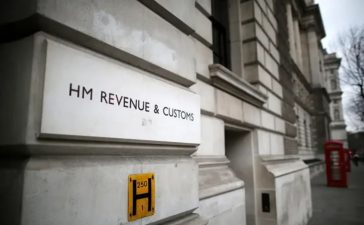Transport correspondent & business reporter
 PA
PAThe government cannot guarantee train tickets will get cheaper under renationalisation, as South Western Railway (SWR) was brought into public ownership on Sunday.
It is the first train company to be nationalised under Labour, a move which the government called a “new dawn for rail”.
While Transport Secretary Heidi Alexander told the BBC she “would love to be able” to promise lower fares, she said the day-to-day running of trains was already heavily subsidised by the taxpayer.
The focus will instead be on improving services and infrastructure, she said.
However, some members of the public questioned the point of renationalising train operators if it did not reduce prices.
The first service by the renationlised SWR departed at 05:36 on Sunday from Woking to Surbiton – though the ongoing journey to London Waterloo was on a rail replacement bus due to engineering work.
SWR trains are now the responsibility of the DfT (Department for Transport) Operator and will be integrated into Great British Railways (GBR), which will oversee all railway infrastructure.
GBR will not officially exist until MPs vote to create it, which looks set to be in the autumn – though it will not be up and running for some time afterwards. Until then, the DfT will be in charge.
Asked whether ticket prices will fall during a visit to a train depot in Bournemouth, Alexander said: “I can’t promise you that.
“I would love to be able to do that but the truth of the matter is that, on an annual basis, just [for] the day-today running of the trains the taxpayer subsidises them to the tune of £2bn a year.”
She added that she “will strain every sinew to make sure that [customers] get good value for money”.
The Conservative Party said Labour had “talked up the benefits of renationalisation for years and they will now have to deliver on their promises of lower ticket prices”.
Shadow transport secretary Gareth Bacon said: “The alternative is that, as usual, British taxpayers have to foot the bill for Labour.”
People who had travelled to the seaside town on England’s south coast this weekend told the BBC that cheaper fares should be at the heart of renationalistion.
Lauren, one of a group of four who came down from Leicester, said: “If we’re not going to have any price reductions, it is not going to benefit the consumers.
“I just don’t know what the point of it is.”

Caroline, meanwhile, said the group used the car instead of the train because “tickets are far too expensive”.
“There’s four of us and to get down here would have been something around £400 – maybe around £500 – for a short break, so we’ve come in the electric vehicle which is obviously a lot cheaper,” she said.
Adam, from Evesham, also avoids using the train because of the cost.
“I frequent Europe quite a lot with work, and if you compare the cost of trains on the Continent to here, you’re probably paying 400% more than what you would over there.”
He added: “It’s a huge reduction of carbon into the atmosphere, it is usually quite a convenient way to travel, you can obviously do other things whilst on that mode of transport, so to make it an affordable, effective way of travel should be a huge priority for the government.”
Whitehall sources have told the BBC that ministers hope to find ways to cut the cost of rail travel, but that it is impossible to make promises before GBR is formally established and other services renationalised.
The first SWR service under public ownership featured the new GBR livery, showing “Great British Railways” and “coming soon” painted in white against royal blue and decorated with part of a union flag.
BBC South political editor Peter Henley was among the first passengers on the train, although he had to swap to a rail replacement bus at Surbiton to get into London due to engineering works.
In 1996, the first privatised service – which took place under John Major’s Conservative government – was also operated by a rail replacement bus.
 Peter Henley
Peter HenleyDespite it being unlikely that fares will fall soon, many of those who spoke to the BBC in Bornemouth were in favour of nationalising trains.
Kemi, from London, who travelled there via coach because it was “cheaper”, said she hoped bringing rail companies under state control would improve “transparency” around prices.
“If they are not going to reduce the cost, [there should be] some kind of justification of why the costs are so high,” she said.
Four major operators have already been brought into public ownership under previous Conservative governments – London North Eastern Railway (LNER), South Eastern, TransPennine Express and Northern.
Two more rail firms, C2C and Greater Anglia, will be renationalised later this year.
Current government plans are to renationalise nearly all passenger rail services in England by 2027.

The Rail Maritime and Transport (RMT) union said SWR’s nationalisation was “a major step forward and is a clear rejection of the failed privatisation model”.
But its general secretary Eddie Dempsey expressed concern over outsourcing staffing for security, cleaning and other areas to private companies, saying: “The job is incomplete when our contracted-out members remain outsourced and not reaping the benefits of nationalisation.”
Seven more companies will be renationalised by 2027 as each of their contracts end – or sooner if their performance is judged to be unacceptable.
These are:
- West Midlands Trains
- East Midlands Railway
- Avanti West Coast
- CrossCountry
- Chiltern Railways
- Govia Thameslink Railway
- Great Western
Rail services in Wales were nationalised in 2021. Scotland took trains into public ownership the following year.
GBR will manage rail tracks across England, Wales and Scotland and operate most passenger train companies in England.












